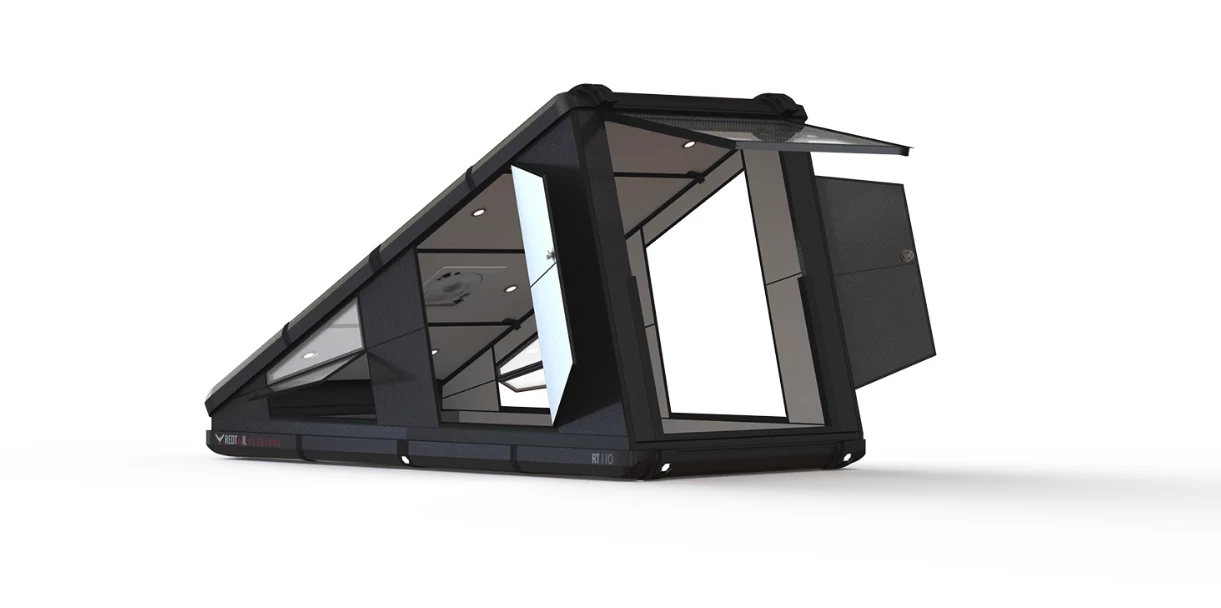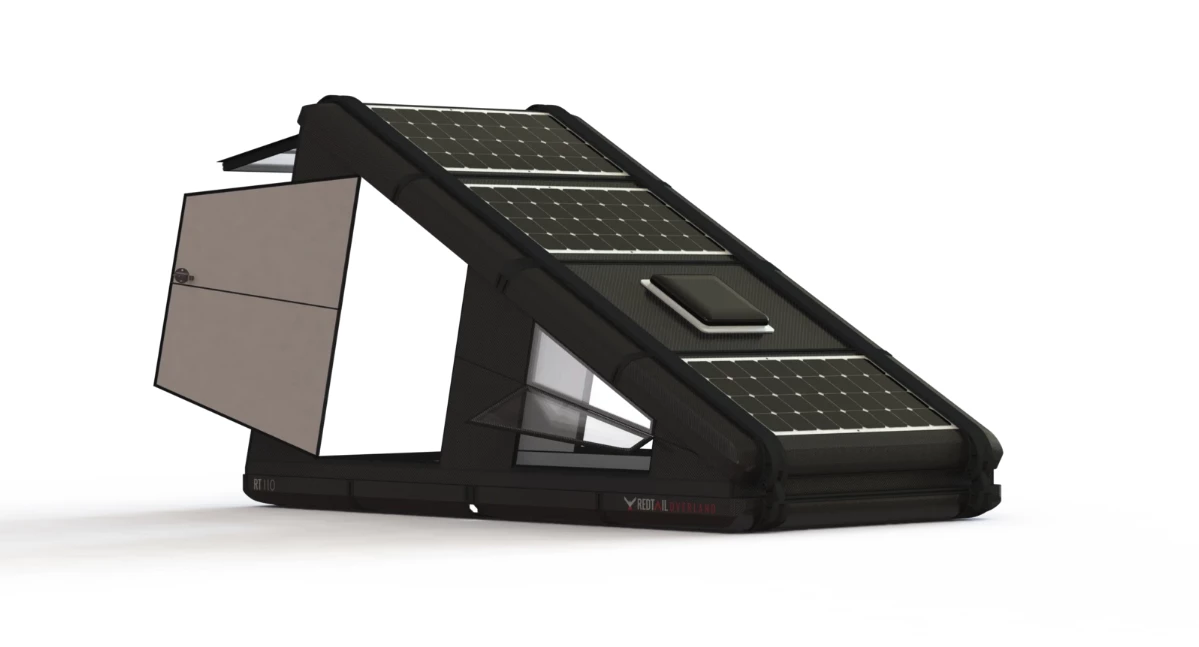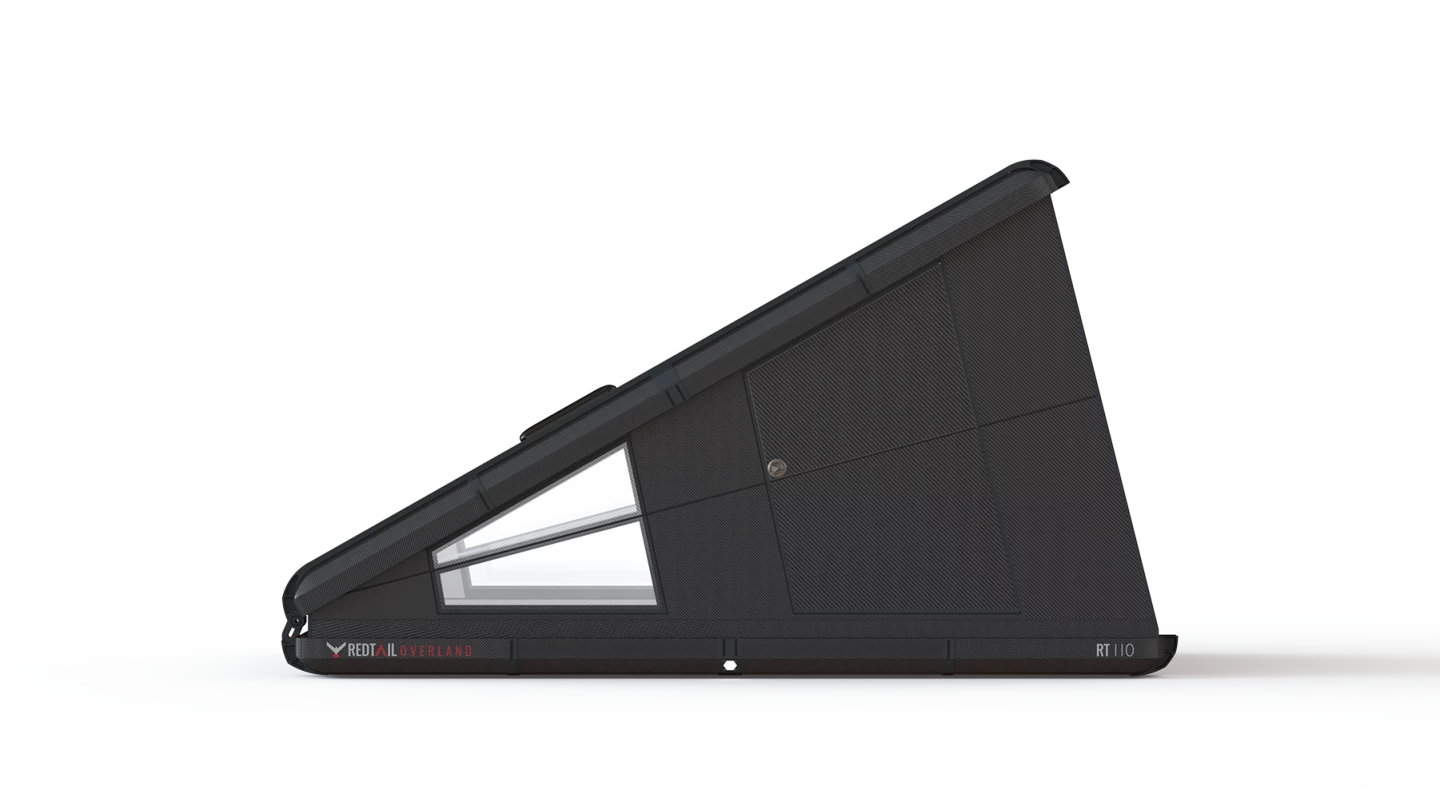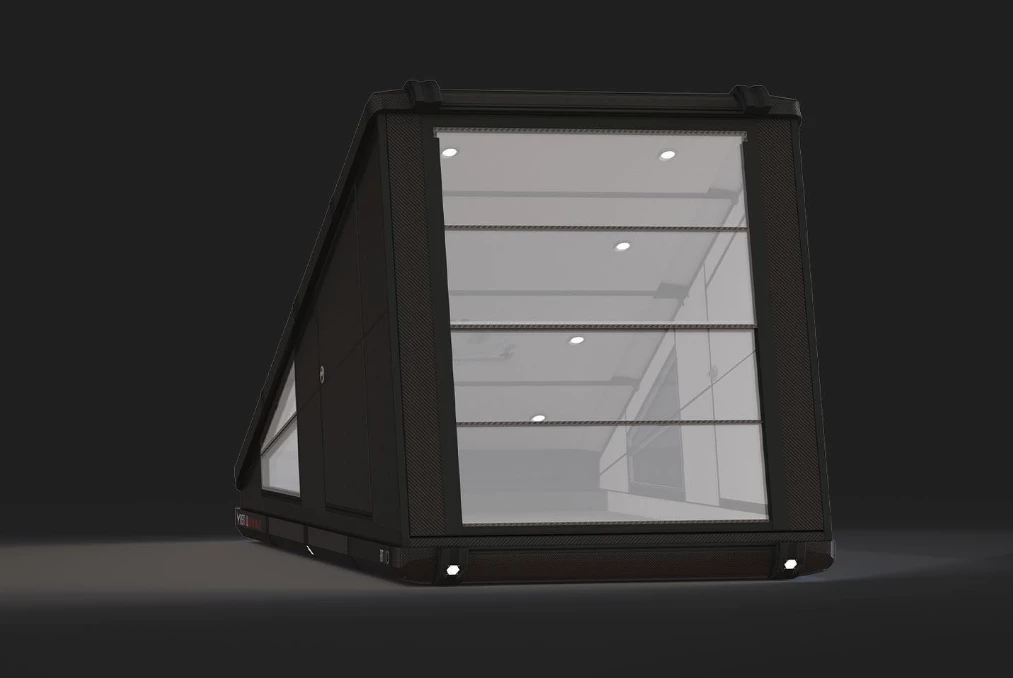The RTT (roof-top tent) has already made a name for itself. Will the RTC (roof-top camper) enjoy the same public embrace? Colorado's Redtail Overland differentiates RTC from RTT by sandwiching three hard sides between a carbon fiber floor and roof and packing in RV-style amenities like solar-fed lithium power and diesel heating. You'll have to bring your own kitchen and toilet, but the four-season Redtail roof camper takes care of warming shelter and power needs in a package that's lighter, more compact and more universal than other vehicle camper alternatives.
We thought the idea of a hard-sided pickup camper was cool, and a hard-sided roof-top tent is potentially even cooler, providing a robust, weatherproof platform that can ride on a variety of vehicles, not just pickups. The Redtail camper's sidewalls operate similarly to those on Ex-Tec Land Rover Defender, angled panels hinged at the center rising into hard walls. Unlike the Ex-Tec Rover, Redtail's roof-top abode eliminates the canvas on the door, relying instead on a fold-up carbon fiber frame around sliding polycarbonate windows. The design also has the convenience of left and right side doors and openable side windows with screens.
Redtail describes its design as the first true four-season roof-top camper, its insulated walls providing a lockable, weatherproof barrier that fabric can't match. There's even a standard diesel heater to keep the inside temperature dialed.

Another feature setting Redtail's design apart from mere tents is its power system. Integrated roof-top solar panels feed a Victron lithium battery. The larger 110 camper has 330 watts worth of panels and 60 amp-hours of battery, while the 90 has 210 watts and 40 amp-hours. Both models include a Victron battery monitor and control system with smartphone compatibility, a 250-W inverter, a 110-V outlet for charging electronics like laptops and cameras, and USB ports for smaller electronics. A shore power hookup offers direct 110-V charging.
The electrical system powers interior and exterior lights, all dimmable via smartphone. The Baja Designs light bar that mounts up front and wires into the vehicle is optional.

The Redtail RTC roof, floor, frame, doors and sidewall panels are all built from carbon fiber to offset some of the vehicle-top weight of the added camper features. The RTCs still weigh more than the 150 to 175 pounds (68 to 79 kg) you can expect from two- to four-sleeper hardshell RTTs like the iKamper Skycamp or Tepui HyBox, but the carbon keeps weight estimates down to 250 lb (113 kg) for the 110 and 190 lb (86 kg) for the 90.
Each Redtail RTC has a 3-in (7.6-cm) foam mattress split into dual cushions to provide access to the integrated floor hatch, which, when lined up with a vehicle sunroof or roof hatch, provides direct pass-through between vehicle and tent. Redtail classifies the 110 large enough for two adults and two children, the 90 a more traditionally sized two-sleeper.
The 110 and 90 model designations are quite recognizable to the overland crowd thanks to the Land Rover Defender and also relate to the 110- and 90-in (279- and 229-cm) RTC lengths. Redtail says the 110 is suitable for vans, pickup trucks and trailers, the 90 for midsize SUVs and larger.

Carbon fiber construction, hard folding sides, and more features than any other roof-top tent out there ... you know that price is going to be well north of the basic RTT. But would you believe $20,000? That's for the 90; the 110 costs $25,000.
Redtail has certainly come up with a nice design, but that price ... It's the same base price that will get you a hard-roofed, four-person Scout Olympic pickup camper. In Redtail's case, the $20K goes to a two-person roof-top wedge that falls short of being a complete camper due to its lack of kitchen, water storage, general interior storage, dining table, and other key camper features. You can find plenty of other trailers and light pickup campers with more space and more amenities for $20K and under. And a basic roof-top tent can be had for 1/10, even 1/20, of that price. Affordability is usually a major advantage of a roof-top tent-based camping vehicle, but not with this one.
Redtail certainly knows the upper end of the overland camper market, though. Husband and wife founders Ty and Annie Tatro spent nearly two decades combined working at EarthRoamer, a company that's helped cultivate a market for overland vehicles with impossibly high price tags. But EarthRoamer is in a class with very few competitors, whereas Redtail is going up against an entire market of larger camper products at similar or lower prices.

If the RTC concept doesn't work out, a stripped-down hard-sided roof tent seems an attractive back-up plan. Dump the extra weight of the electrical system (which would be better carried in the vehicle below, anyway), make the heater, lighting and floor hatch optional, and look to alternative construction materials like fiberglass to lower costs. Then offer the market's only hard-sided roof-top tent for a premium, but not an exorbitant premium that leapfrogs roomier, better-equipped options.
But who knows? Patriot Campers and others have proven you can make a business out of selling $50,000 campers with simple canvas tent interiors, so maybe people will spend $20,000 on a nice, hard-sided RTT. Maybe there are even some owners of six/seven-figure expedition trucks and custom camper vans looking to throw the kids and their smartphones into an all-in-one roof shelter, price less of an object than precise functionality.
Whatever the RTC's fate, we hope that the reasonably priced hard-sided tent shell for the rest of us is on its way.
Source: Redtail Overland








